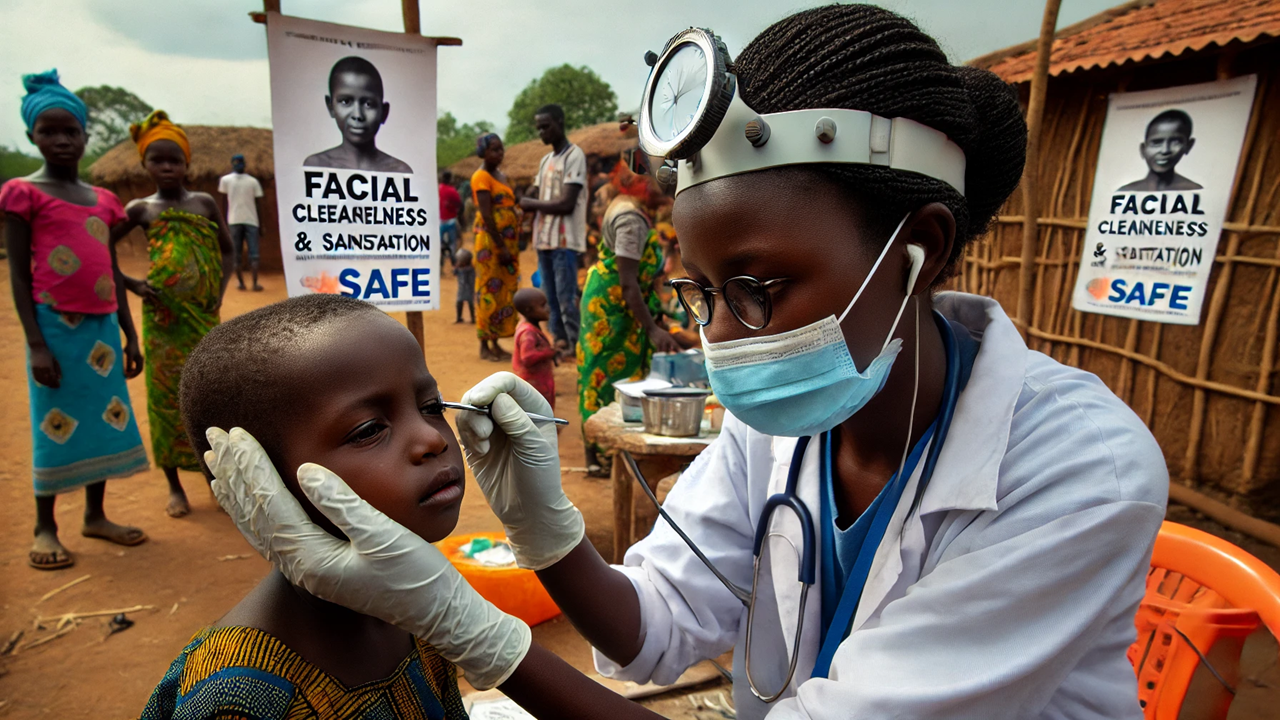Burundi Eliminates Trachoma, Marks Major Milestone in Public Health Fight
Trachoma, a bacterial eye infection caused by Chlamydia trachomatis, remains the leading infectious cause of blindness globally.

- Country:
- Burundi
Bujumbura, July 11, 2025 — In a landmark victory for public health and disease control, the World Health Organization (WHO) has officially validated Burundi as having eliminated trachoma as a public health problem. This historic achievement makes Burundi the eighth country in the WHO African Region and the 24th globally to reach this milestone. It is also the first neglected tropical disease (NTD) to be eliminated in Burundi.
WHO Director-General Dr Tedros Adhanom Ghebreyesus hailed the development as a testament to long-term commitment and resilience.
“Eliminating a disease like trachoma is a major public health achievement that requires sustained effort and dedication. I congratulate the government and people of Burundi and commend them for their hard work and commitment,” he said.
Trachoma, a bacterial eye infection caused by Chlamydia trachomatis, remains the leading infectious cause of blindness globally. The disease spreads through contaminated surfaces, close personal contact, and flies, and repeated infections can lead to trichiasis—inward-turning of the eyelashes—and eventual blindness. The disease thrives in areas with poor sanitation and limited access to clean water, making it a stark indicator of poverty.
Nearly Two Decades of National Mobilization
Burundi’s victory over trachoma reflects a nearly 20-year campaign to map, control, and eliminate the disease through an integrated national effort. Speaking on the achievement, Dr Lydwine Baradahana, Minister of Public Health and the Fight Against AIDS, praised the unity and determination behind this success.
“This validation marks a major milestone in our commitment to health equity. It is a collective victory made possible by nearly 20 years of national mobilization and international solidarity.”
The country had little epidemiological data on trachoma until 2007, when Burundi launched a major neglected tropical diseases (NTD) mapping initiative, including soil-transmitted helminths, schistosomiasis, lymphatic filariasis, and trachoma. Baseline surveys in 2009–2010 confirmed trachoma endemicity in 12 health districts, prompting the deployment of WHO’s recommended SAFE strategy (Surgery, Antibiotics, Facial cleanliness, and Environmental improvement) for 2.5 million at-risk individuals.
Strong Partnerships Powering Progress
Burundi’s elimination campaign received technical and financial support from a wide range of global partners, including:
-
CBM Christoffel Blindenmission
-
The END Fund
-
Geneva Global
-
WHO
-
The International Trachoma Initiative, which donated azithromycin (Zithromax) through Pfizer’s donation programme
WHO Representative in Burundi, Dr Xavier Crespin, acknowledged the collective effort and unwavering leadership of the Ministry of Public Health:
“This achievement reflects the government’s resolve to protect its most vulnerable populations. This win inspires us to press forward with the same determination to eliminate all remaining neglected tropical diseases.”
Global and Regional Context: Progress, But Challenges Remain
Burundi’s success contributes to the growing momentum across Africa in eliminating trachoma. Other countries in the WHO African Region that have achieved elimination include Benin, Gambia, Ghana, Malawi, Mali, Mauritania, and Togo.
However, trachoma remains a public health problem in 32 countries, with approximately 103 million people still living in areas where the disease is endemic. The African Region bears 90% of the global trachoma burden, with 93 million people at risk as of April 2024. This reflects a 51% reduction from 189 million in 2014—a remarkable accomplishment, yet still far from total eradication.
Twenty African countries still require active interventions, including Ethiopia, Nigeria, Chad, Niger, South Sudan, and others. Four additional countries — Botswana, Guinea-Bissau, Namibia, and Senegal — claim to have reached elimination thresholds and await WHO validation.
Global Milestone in Neglected Tropical Disease Elimination
With Burundi’s achievement, 57 countries worldwide have now eliminated at least one NTD, with 24 of them eliminating trachoma specifically. In addition to African nations, countries like India, Cambodia, China, Mexico, Iran, Saudi Arabia, Nepal, and Vietnam have also reached this public health benchmark.
The global fight against trachoma continues to be anchored in international solidarity, scientific innovation, and strong national leadership. WHO continues to support endemic countries through technical guidance, drug donations, and surveillance efforts to prevent resurgence.
What’s Next for Burundi?
Even as WHO celebrates this milestone, ongoing vigilance is essential. WHO and national health authorities will continue monitoring areas previously affected by trachoma to ensure no resurgence occurs. Emphasis will remain on water, sanitation, and hygiene (WASH) programmes, as well as health education and infrastructure improvements.
Burundi’s success against trachoma is expected to serve as a model for combating other neglected tropical diseases, reinforcing the country’s health systems and elevating the quality of life for millions.
A Symbol of Hope and Determination
Burundi’s journey from data scarcity in 2007 to full-scale elimination in 2025 reflects the power of political will, community engagement, and international cooperation.
As Dr Tedros noted, “It is great to see Burundi join the growing group of countries that have eliminated at least one NTD.” It is not just a national milestone—it is a regional and global victory in the ongoing quest for health equity and dignity for all.
- READ MORE ON:
- Burundi
- Trachoma Elimination
- WHO
- Neglected Tropical Diseases
- SAFE Strategy
- Public Health
- NTDs Africa
- Azithromycin
- Global Health
- Disease Elimination
- Health Equity
- CBM
- END Fund
- Zithromax
- International Trachoma Initiative
- Water Sanitation Hygiene
- Africa Disease Control
- Ministry of Public Health Burundi









